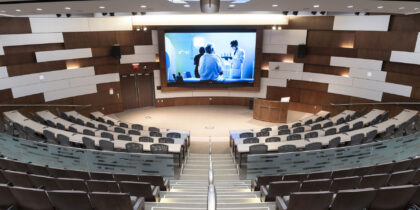In-service technology training is a common feature in K–12 education. But as more colleges and universities cater to distant students and faculty by offering online courses, it’s becoming an important part of higher-ed teacher development, too.
The Move to Online and Blended Learning
Colleges and universities are evolving to serve a student body that doesn’t always live near a campus. Many master’s programs are offered online to serve working professionals, and bachelor’s programs are moving online, too. Some instructors are incorporating video into lectures and homework to help capture the attention of their Vine-loving students. Additionally, some colleges are experimenting with using online courses to provide access to distant faculty in specialized fields.
But faculty members aren’t always comfortable teaching online — they didn’t learn that way, and they’ve received little training in what works for online teaching.
The Evolution of Faculty Development
Colleges are creating new teacher development programs focused on online learning, such as the University of North Carolina’s Instructional Innovation Incubator, Pennsylvania State University’s Graduate Student Online Teaching Certificate program, and the University of North Florida’s Teaching Online Faculty Development Model. These programs are designed to ensure that faculty are prepared for and skilled in delivering instruction online. So far, these programs have trained small cohorts of faculty, much like the student cohorts they typically oversee, who can then serve as role models for their fellow faculty.
Many professors have been teaching for many years, and they’re more likely to innovate in their research than in their classroom work. Programs like these help faculty see the benefits of new models of teaching and become motivated as they explore digital tools and techniques. It also helps higher education remain viable, as students benefit from a more active and innovative faculty and can take advantage of learning opportunities that best suit them, not just the ones physically nearby or that fit into their rigid course schedules.
Ongoing Learning Opportunities Foster Continued Innovation
One-off summer trainings aren’t enough to ensure that higher-ed faculty embrace new modes of teaching. Schools can also create spaces for faculty to share ideas and explore different ways to use technology to enhance their students’ learning. They can also offer course release time for faculty to train and develop online learning opportunities. Finally, colleges should ensure that faculty have a technology point person to contact when they run into trouble — that support will help them feel comfortable taking chances. And ongoing opportunities to use what they learn in specialized training sessions will ensure that the training won’t be wasted.
Learn about other ways in which higher-ed leaders are facilitating digital transformation on campus.







